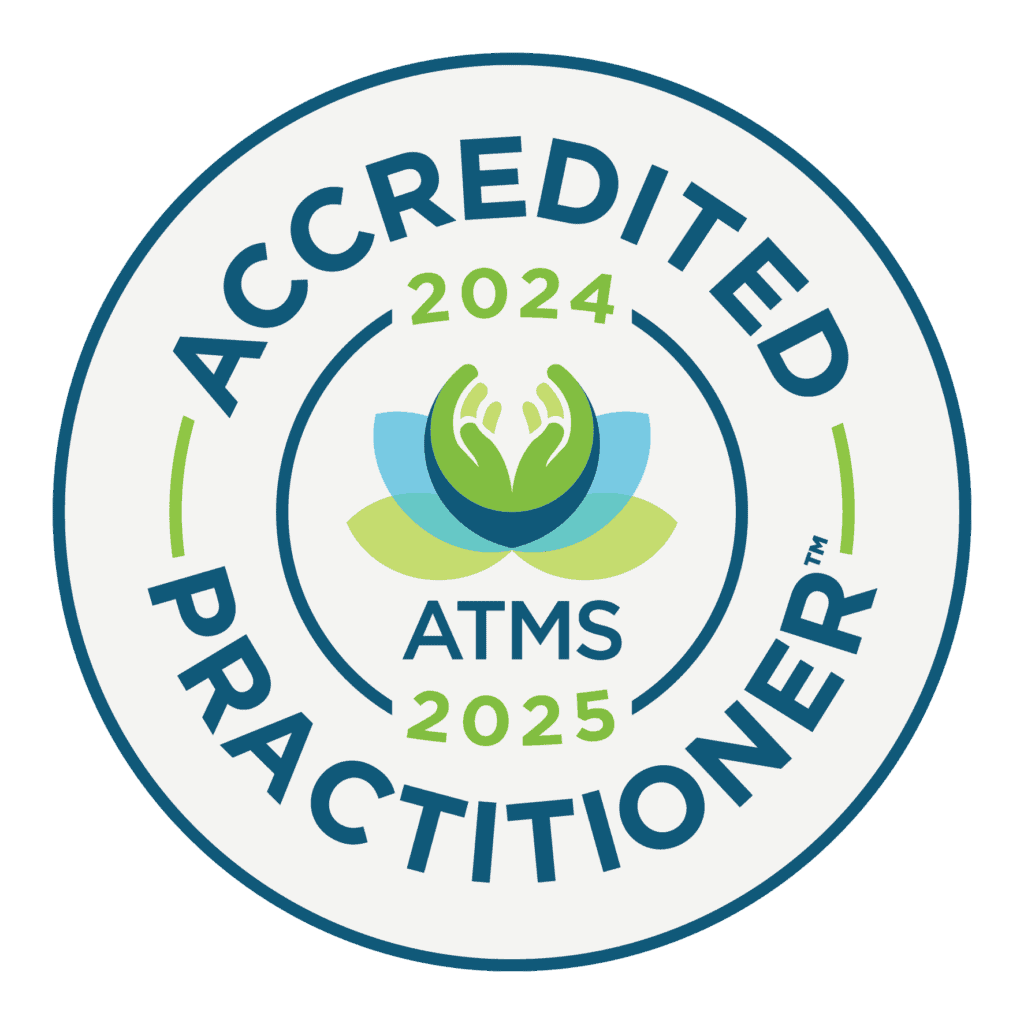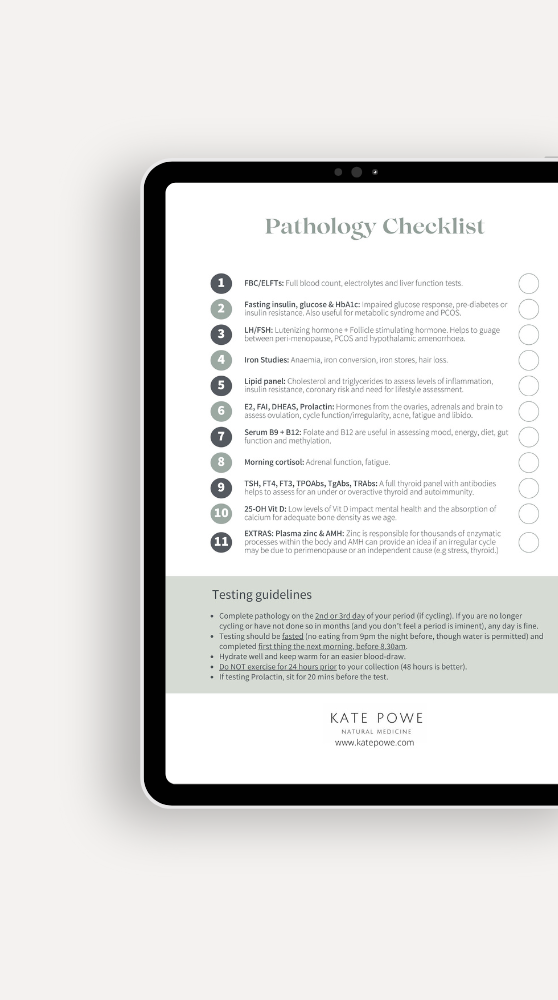Histamine may have more to do with your period problems than you realise.
If you’re a regular sufferer of hayfever and pet, dust or seasonal allergies, you’re probably aware that histamine is behind your symptoms (if not for the very fact an anti-histamine will probably be your best friend.) But why is it happening and could it be affecting other things like your PMS, period pain or heavy flow?
Let’s start with what’s going on in your body:
- Firstly we need to consider the gut. Excess histamine can result from damaged enterocytes within the small intestine due to inflammation causing leaky gut. Additionally, various species of Escherichia coli (E. coli) have been shown to increase histamine production via the release of lipopolysaccharides (LPS), a gram-negative bacteria also associated with endometriosis. If you have had a CDSA/stool analysis for gut health, it is worth noting if this is an overgrowth of E. coli as a marker of histamine excess (histadelia).
- Next, let’s look to the immune system. In the presence of a pathogen, the body mounts an inflammatory cascade. This includes histamine which dilates blood vessels and allow white blood cells to the area as well as increasing fluid secretion at the site of inflammation to help remove the allergens or pathogens. And all of that is normal. But when mast-cells are unstable, or the message to mount an immune response is over-active, histamine levels can explode, leaving you an itchy, puffy or sneezy mess.
- Genetics also play a part. If you have a glitch in the genes and enzymes that are responsible for histamine metabolism and clearance (DAO + HNMT), it’ll hang around your system longer.
- Foods contain histamine. Eat those foods, increase your load.
- Finally, your hormones oestrogen and progesterone play a major role. Oestrogen increases levels, while progesterone helps combat levels via DAO production.
And if our bodies lack the ability to clear excess histamine it can cause less well-known symptoms such as headaches and migraines, arthritis and even a higher-risk pregnancy.
How do you know if you’re high in histamine?
If you’re affected by allergies, you probably already know. But it’s not always as obvious. You can have your levels tested via pathology, or if you’ve had a genetic profile done, you can look at your HNMT and DAO and enzymes which metabolise (or break down) intracellular and extracellular histamine respectively.
You may also suffer from some of the following conditions which may be linked to under-methylation and histadelia:
- period pain/dysmenorrhoea
- heavy periods/menorrhagia
- nausea/vomiting
- headaches/migraines
- anxiety/depression
- diarrhoea
- low or high blood pressure
- fainting
- vertigo
- anaphylaxis
- heart palpitations/arrhythmia
- hypotonia/low muscle tone
- itchy eyes and skin
- sneezing/runny nose/post-nasal drip
- flushing
- eczema/asthma
- urticara/hives
- reactions to foods such as avocado, eggs, pineapple, citrus, tomato, chocolate, aged cheeses, wine, fermented foods and shellfish
The Hormone Connection
Oestrogen causes histamine to rise. As mentioned above, oestrogen slows the DAO enzyme needed to clear histamine. So if you’re a high-oestrogen woman, suffering heavy or painful periods, PMS or migraine, it’s possible you’ll be high-histamine too.
And remember, histamine tracks oestrogen. Oestrogen sharply rises just before ovulation and again in the week before your period … sound like a familiar PMS picture?
Pregnancy
In contrast, many women with allergies find significant relief during pregnancy. This is because the placenta makes large amounts of DAO. This typically results in a symptom-free pregnancy. Unfortunately, the symptoms tend to reoccur once DAO from the placenta is no longer available after childbirth.
What Can We Do About It?
- Diet: Temporarily avoid foods that are making the issue worse. These include: ferments, kombucha, kefir, kimchi and bone-broth (I know, all those gut-healing foods you thought were healthy right?) red wine, chocolate, aged cheeses, salami and processed or smoked meats/fish, leftovers, shellfish, vinegar, tomato, spinach and avocado.
- Herbs + Nutrients: a personalised liquid herb mix focusing on mast-cell stablisation, reducing inflammation and aiding liver function and detoxification. Some of my favourites include: Scutellaria baicalensis, Albizia lebbek and Holy Basil, as well as Vitamin C, Quercetin, Methionine and B6.
- Improve your body’s methylation processes: via carefully monitored supplementation with methyl doners supporting its breakdown and clearance. **NB Methylation is a tricky sucker to balance and not one I recommend you attempt to self-treat. Please see a practitioner trained in genetics and methylation for guidance.
- Probiotics: Some strains are histamine-releasing so we need to stick to friendly species like Bifidobacterium infantis and Bifidobacterium longum and the strain-specific Lactobacillus rhamnosus GG.
- Modified Activated Clinoptilolite (MAC): Predominantly a heavy-metal detoxification aid, MAC may also help bind and clear histamine.
Kate is a qualified naturopath who is passionate about helping women heal from hormonal havoc and inspiring women to know their own power, worth and wisdom.
Kate offers one-on-one Skype consults for irregular cycles, PMS and period pain, endometriosis, PCOS, peri-menopause, mood swings, fatigue and mental and emotional stress.
Simply drop me an email to see how I can help you!









6 thoughts on “Allergies, Hormones and the Histamine Effect”
Hi Kate!
I tested for iron and vit d. My test results came back and I have
30 ug/l in iron (ferritin) and 50 nmol/l in d-vitamine. Are these levels low? The d-vit is especially low if I’m reading it right, but I don’t know with the iron (ferritin). My doctor says the levels are fine. But I suffer many of these symptoms that you are writing of in this post and the vit d post.
I was suppose to post this on the anemia article.
🙂
Hi Hilde,
From a functional perspective, yes, they are both low. Ferritin (ensure you don’t mean Iron) should be around 50-100 and Vit D closer to 100.
Kate
Could these low levels contribute to acne?
I’d suggest acne may be related to a few other issues such as low zinc, dairy sensitivity or hormonal imbalance. It might be worth checking with your health care practitioner if you’re worried.
Comments are closed.